10 Ways You Can Eat For The Planet (And Be Healthier)
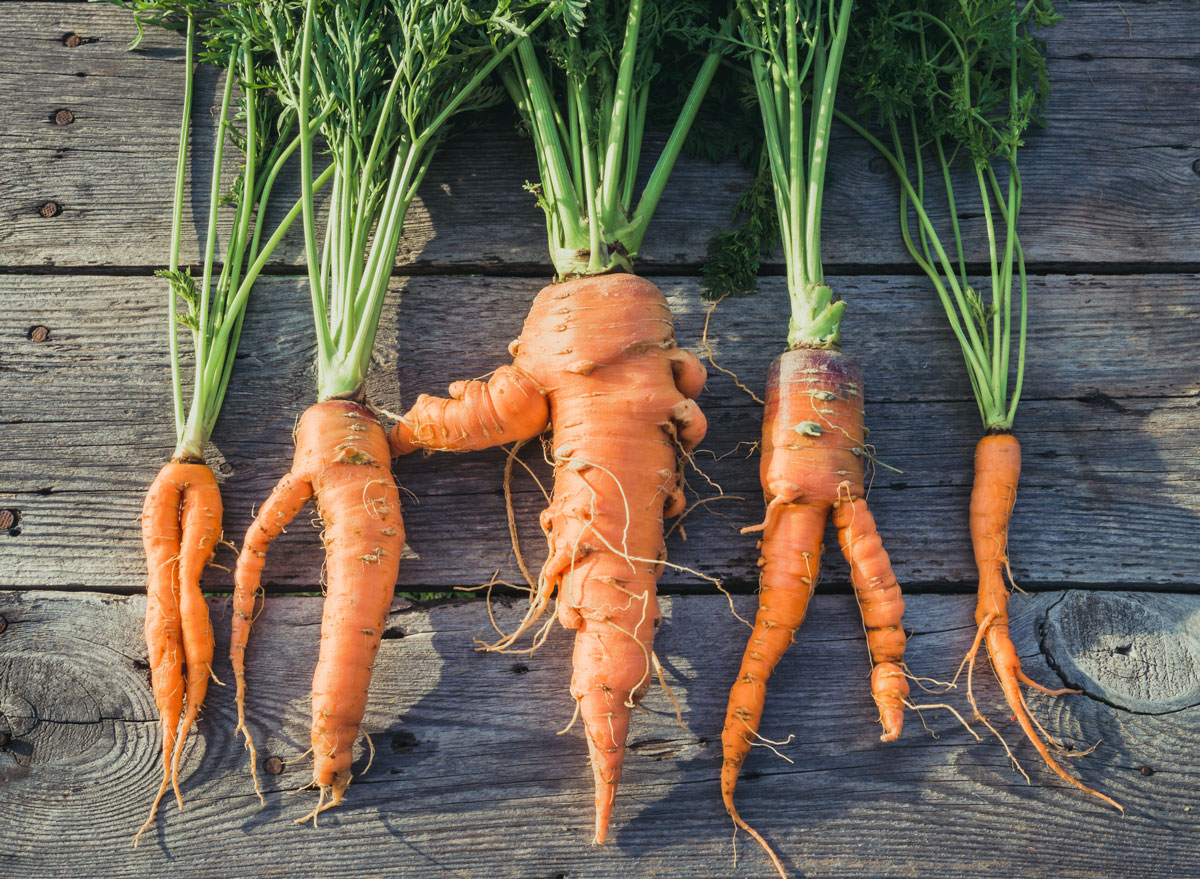
If this year has taught the world anything so far, it’s that the planet is in serious crisis-mode. Greenhouse gas emissions have caused the planet’s average surface temperature to rise, oceans to warm, and ice sheets to shrink. Polar bears have become a vulnerable species. Every year, 18 billion pounds of plastic—much more than just straws—enters the oceans, causing serious harm to the creatures that call it home.
It might seem like change can only be made on a large scale, but you can start making a difference today—and it all starts with your diet.
While trading plastic straws for metal options and using reusable grocery bags whenever possible makes a difference, what you eat and how you shop has a bigger impact on the environment than you think. Between the amount of Earth-harming greenhouse gases produced by the meat industry and type of produce you buy, switching your habits could not only help make the world a better place, but it can improve your own health, as well. Here are 10 ways you can eat for the planet, starting today.
Stop Eating So Much Meat
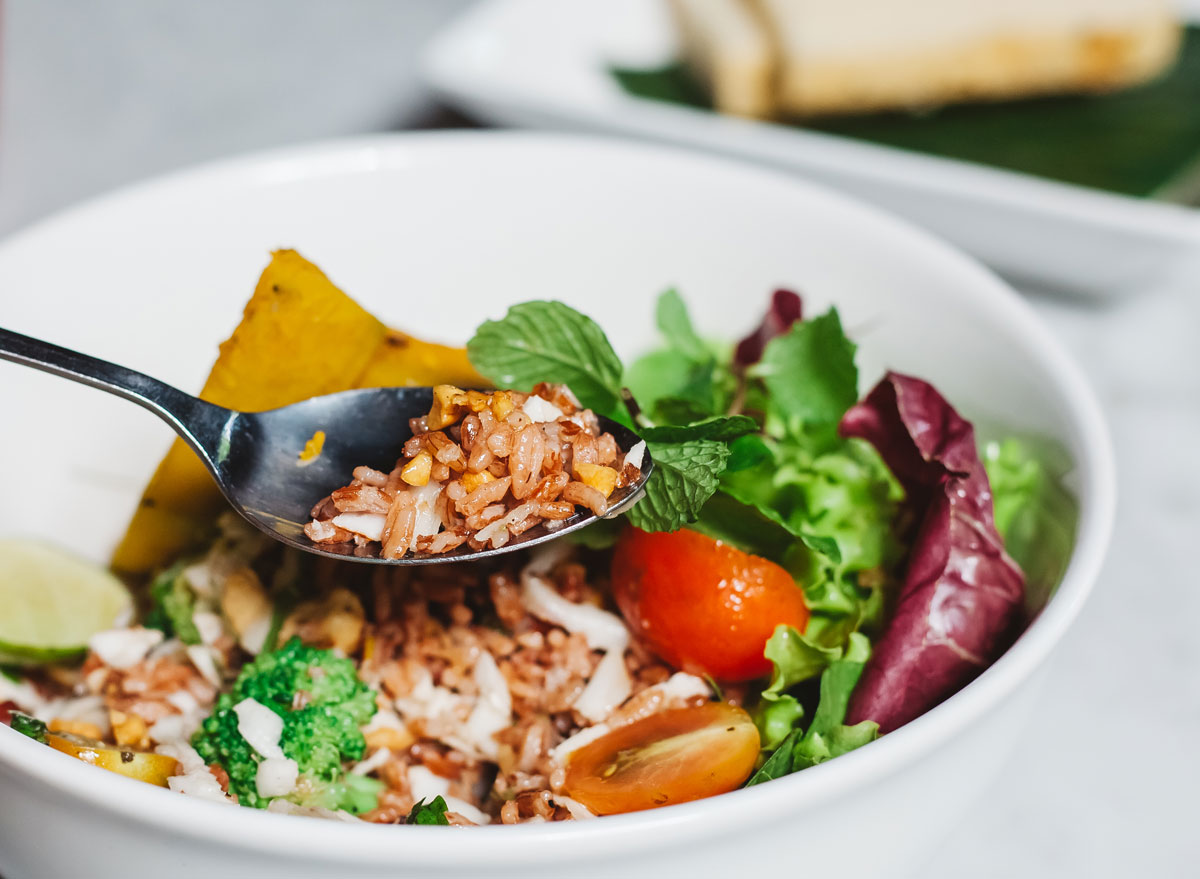
If you’ve been considering ditching meat, there’s no better time to do so than now. In a recent report published by The Lancet, 37 scientists from 16 different countries presented the best diet for the planet and people’s health, and it’s plant-based. By cutting meat, people can not only decrease their risk of coronary heart disease, stroke, and diabetes, but also help the environment. According to the Environmental Working Group (EWG), while lamb, beef, pork, and cheese generates the most climate-affecting greenhouse gases, high-protein plant foods like lentils, tofu, and beans produce the least. In addition, producing meat also uses up large amounts of “environmentally destructive and energy-intensive” pesticides, fertilizer, fuel, and water.
Eat Organic Whenever Possible
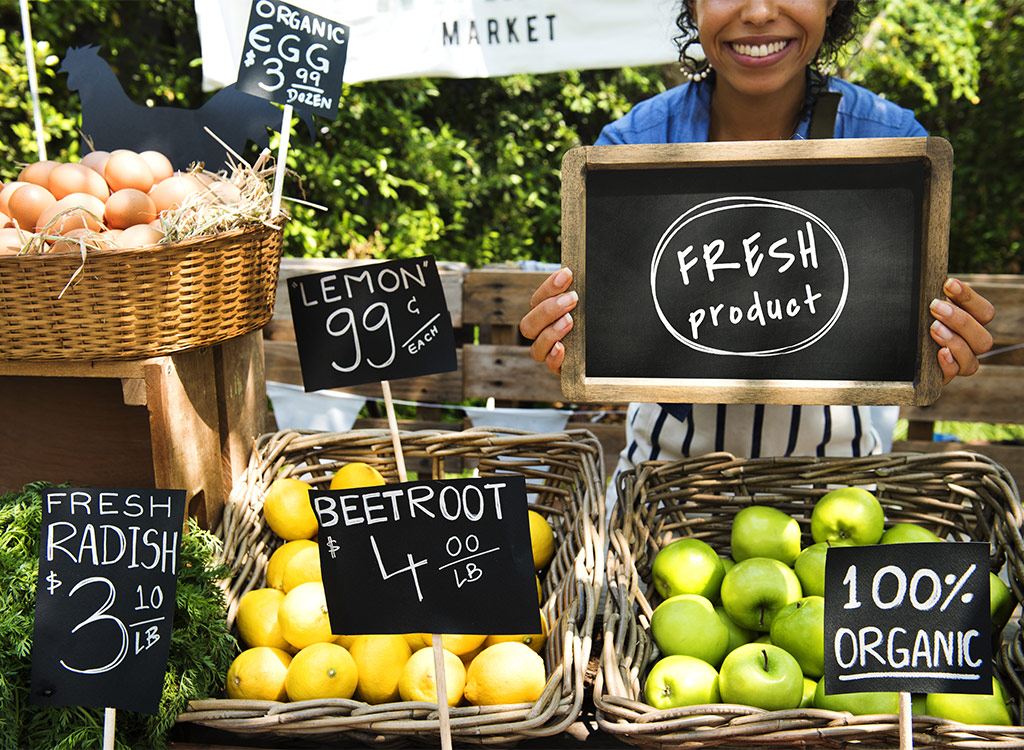
Sure, buying organic produce can sometimes be a little more expensive. It’s definitely worth the extra cost, though. According to the Food and Agriculture Organization of the United Nations (FAO), organic agriculture has practices that can help produce food without the long-term environmental damage through the use of organic fertilizers, soil-building practices like crop rotations, and a huge reduction in groundwater pollution—something that’s common in non-organic agriculture. Going organic can also help improve your overall health and well-being. They’re less likely to contain pesticide residues than conventionally-farmed foods, which one JAMA study found could lower your risk of developing cancer.
Buy from the Bulk Bins
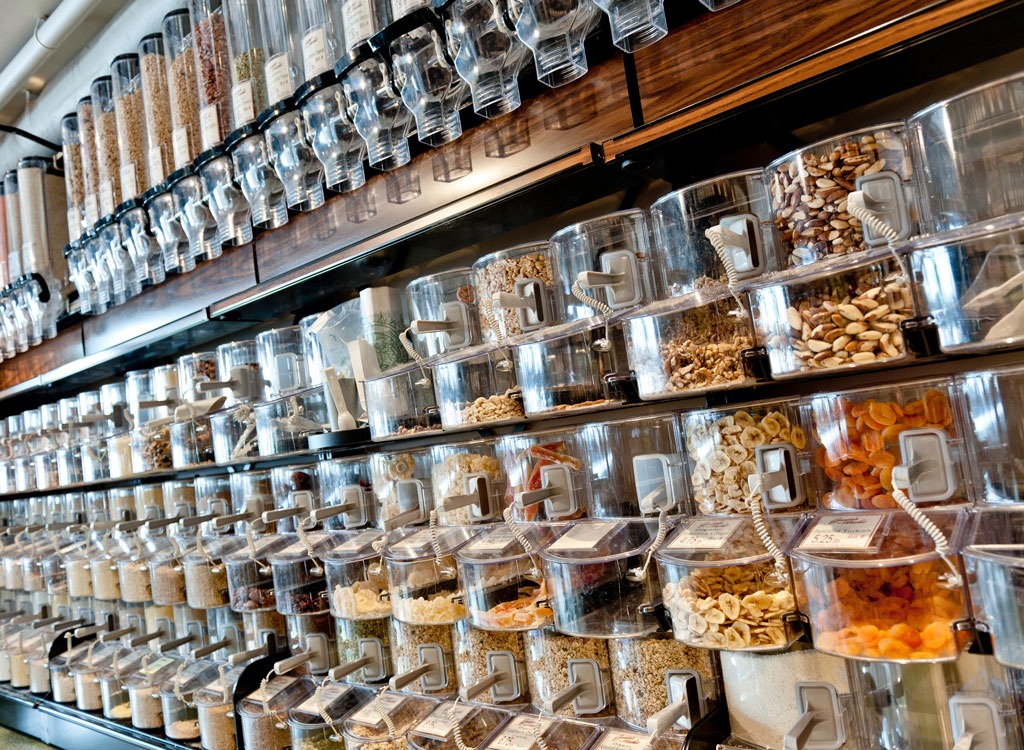
The bulk bins at the supermarket can be a little intimidating, but there’s a reason why you should always be getting your dry goods from those bins. Aside from significantly cutting down on what gets tossed into the garbage with less packaging and food waste, it’s also cheaper. One report found buying organic bulk foods tends to be 89 percent less expensive than getting the packaged stuff. On top of that, it also allows you to try new things. You can get basic essentials—like oats, rice, and nuts, as well as hearty plant-based proteins like lentils and beans—that can be used in an endless amount of healthy meals.
Stock Up on Plastic-Free Veggies
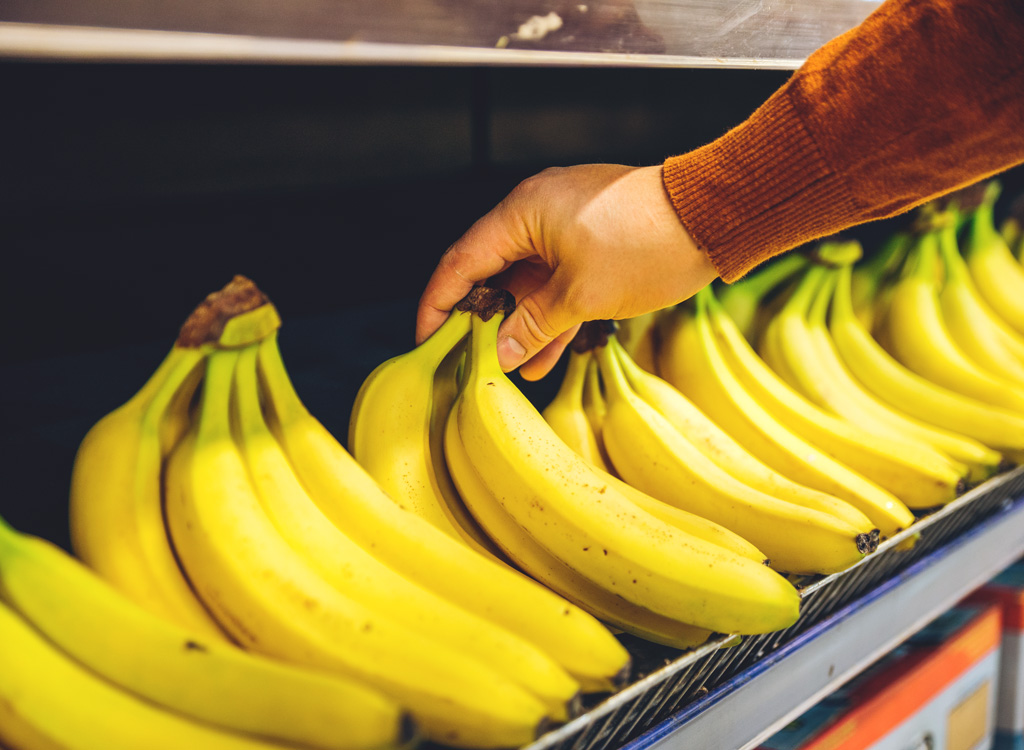
The next time you go to the store, look at how many veggies are wrapped in plastic. Grocers like Aldi and Trader Joe’s are already making commitments to reduce and remove plastic packaging in the produce section within the next couple years, but it will still be a while until every supermarket is on board. For now, load up on health-benefiting vegetables the eco-friendly way by shopping the plastic-free options and putting them in reusable mesh produce bags.
Buy Imperfect Produce
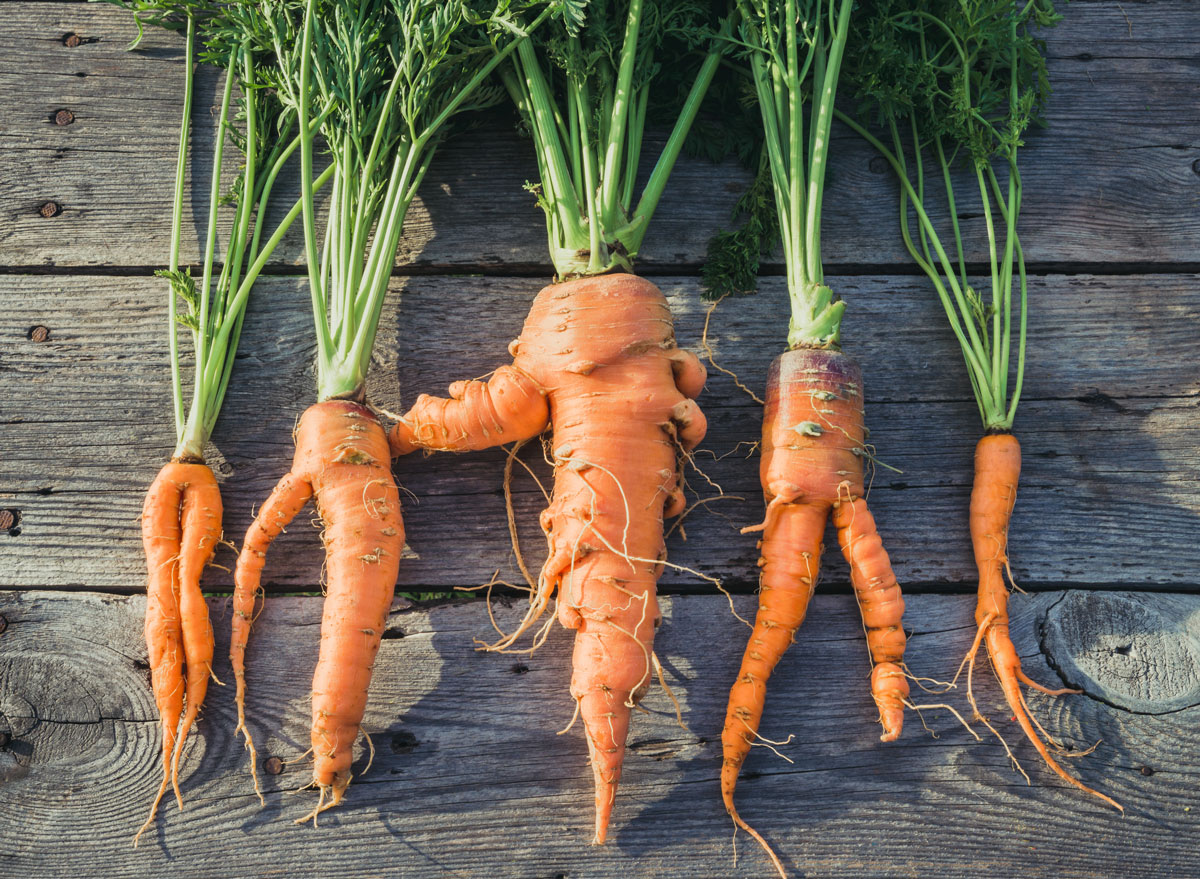
It’s easy to get into the habit of spending forever sifting through produce until you find the perfect picks. By going with veggies that don’t usually make the cut, you could help prevent food waste and still reap the health benefits of eating them. According to Imperfect Produce, 20 billion pounds of produce go to waste every year because of being too “ugly” for grocery stores’ standards. That uses valuable resources—like freshwater and cropland—and produces greenhouse gases when it ends up in landfills. Instead of tossing those foods, the company celebrates their imperfections and ships boxes straight to your door. Extra bonus: It’s cheaper, too.
Stop Ordering So Much Takeout
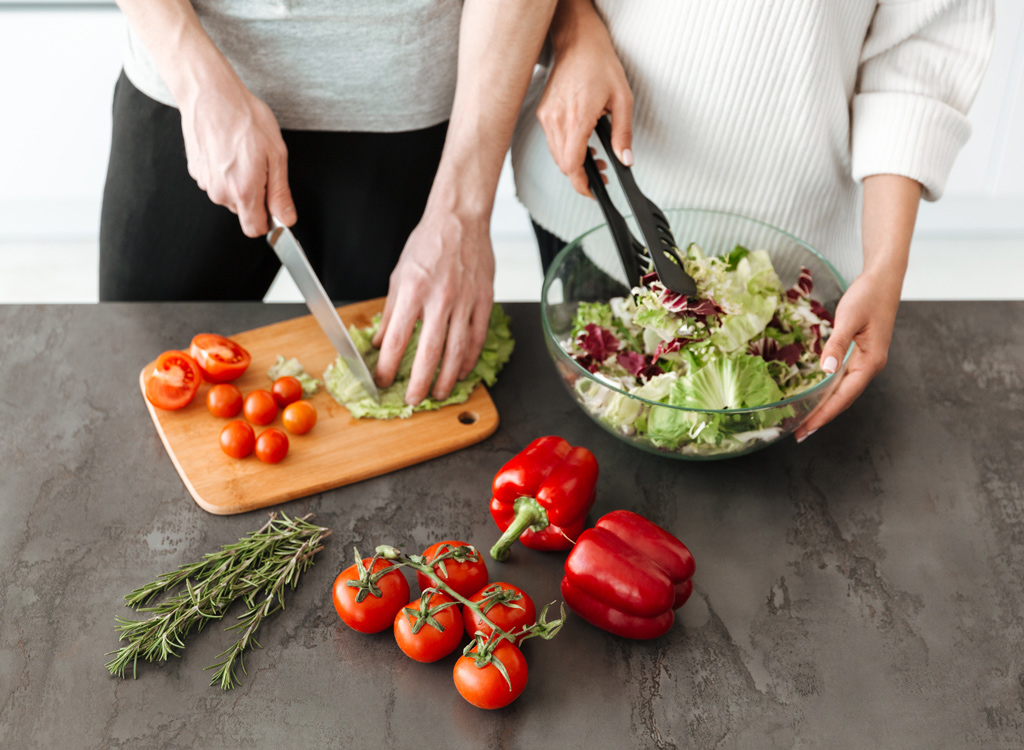
Ordering takeout sounds like a good idea—especially on those nights you want to do anything but cook! Unfortunately, those unhealthy options aren’t just bad for your body. They’re also bad for the environment. By taking the time to whip up more nutritious options at home, you’ll benefit your health and cut down on the amount of takeout containers being used, like the plastic clamshells that are non-recyclable and wind up in landfills.
Ditch Dairy
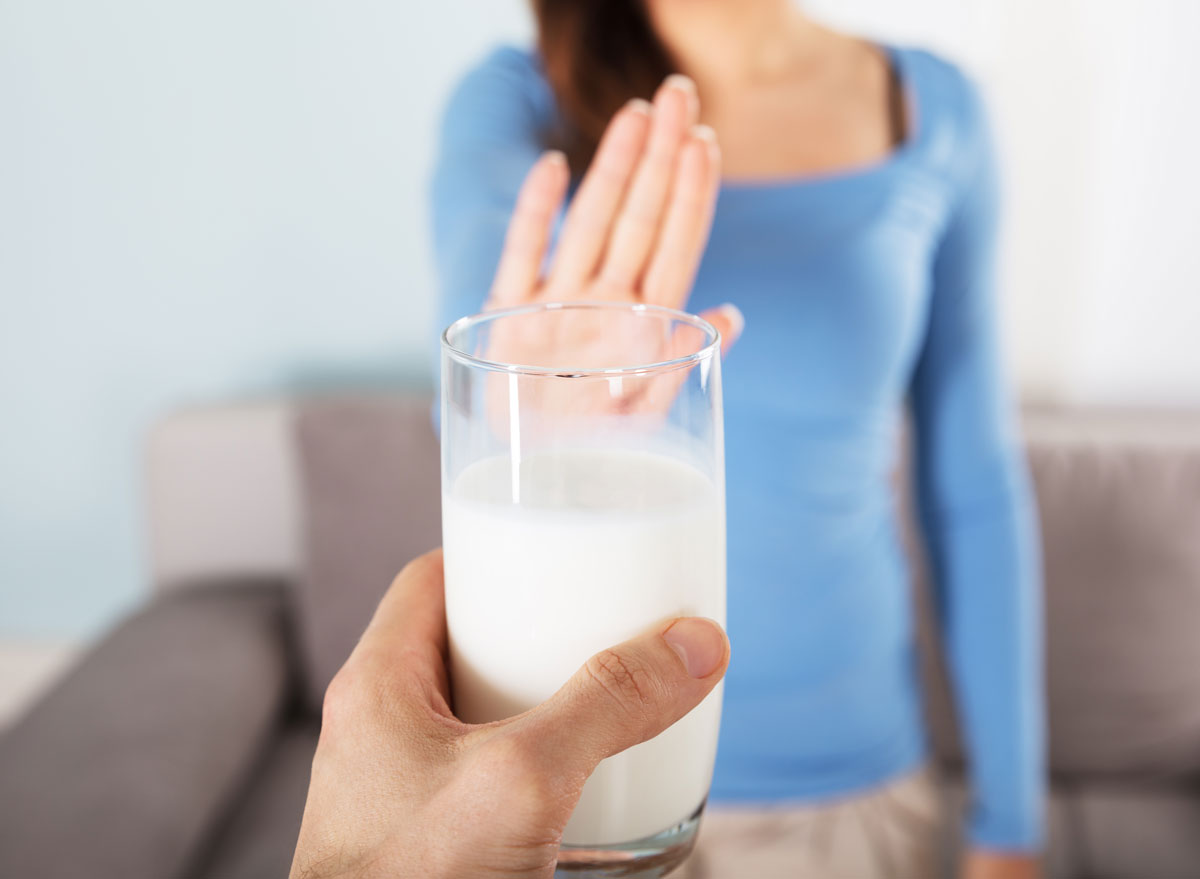
Cutting down on your meat consumption does wonders for your health and the planet, and eating less dairy (or ditching it completely) will make a huge impact as well. One report found both the meat and dairy industries play a strong role in global warming—so much so that the world’s top five meat and dairy corporations are responsible for more greenhouse gas emissions than the biggest oil companies. Since dairy is a top source of saturated fat and can contribute to heart disease, diabetes, and potentially put you at an increased risk of cancer—not to mention one of the main cause of digestive problems—using plant milks instead could help you feel better than ever, now and in the future.
Pay Attention to Nutrition Labels
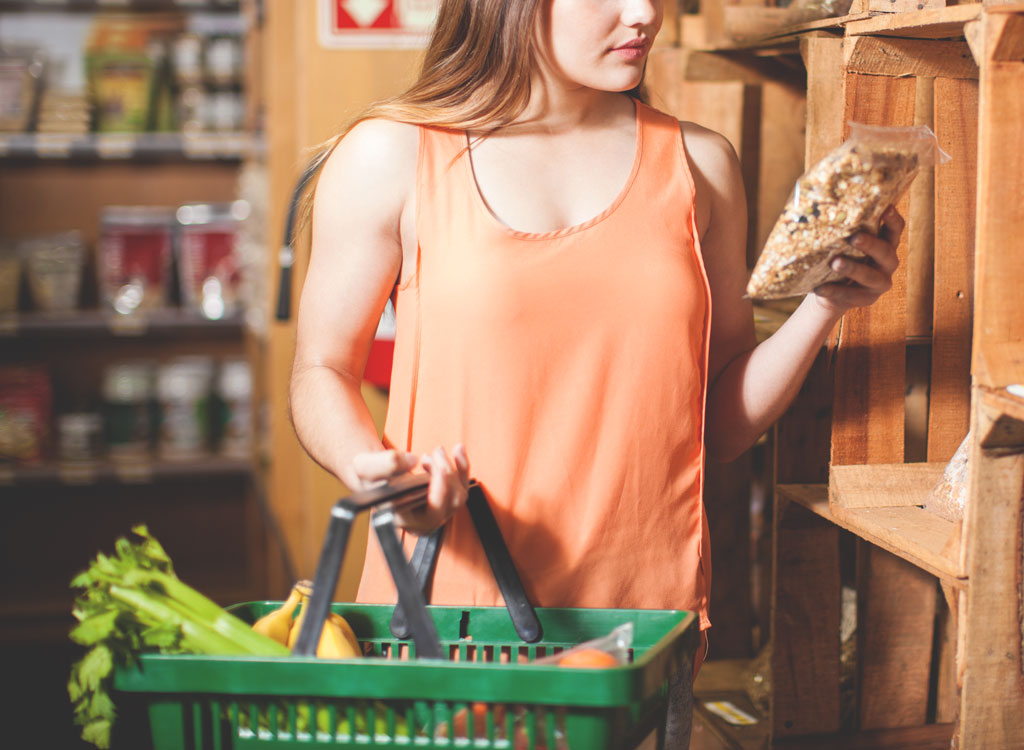
Reading through every nutrition label at the grocery store takes time, but it can benefit your health and the planet in a big way. After making sure the item is actually good for you, also check how recyclable it is. Just because the product has a “chasing arrows” symbol on it doesn’t mean it is. According to Eartheasy, it’s important to look at the number within each triangle. While the plastic that makes up things like water bottles are recyclable (although still wasteful!), plastic #3 (including food foils and fruit trays) and #7 (including acrylic, nylon, and fiberglass) are not. Plastic #4 isn’t always recyclable either, which includes plastic bags (like the ones used to package bread) and squeezable bottles.
Eat Seasonal Veggies
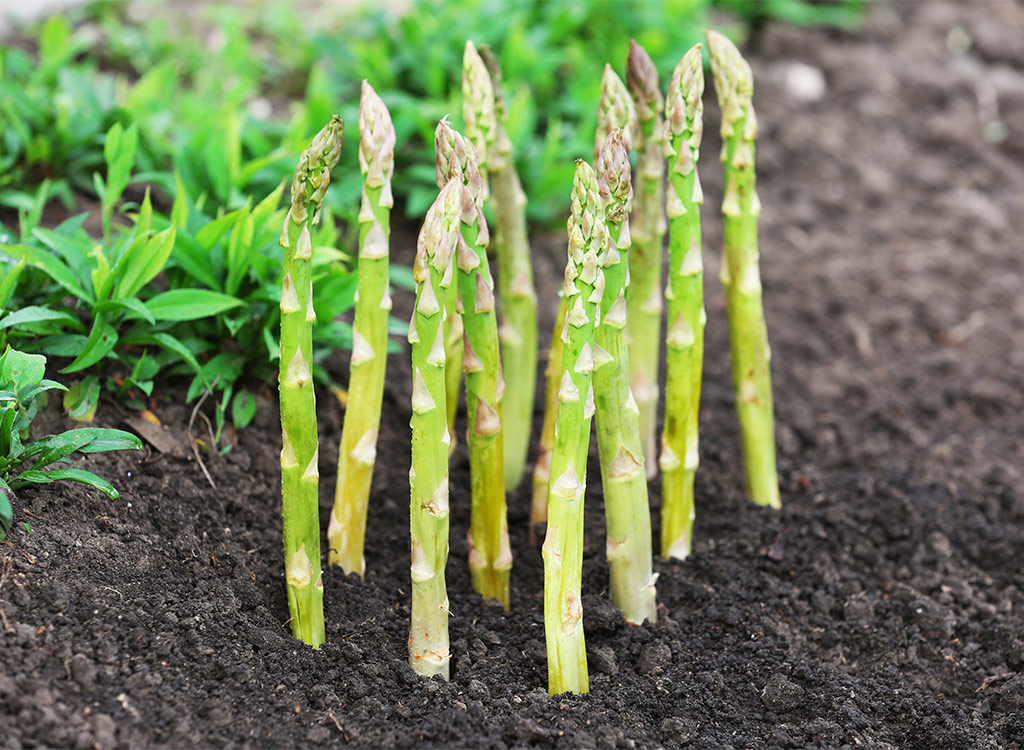
Eating in season allows you to get the freshest, tastiest produce to help you pack your meals with flavor—not to mention plenty of health-helping vitamins and nutrients. It also helps the environment. When you eat food that grows naturally in each season, you’re able to shop locally and reduce the amount of greenhouse gas emissions it takes to get food from elsewhere in the world to your plate, says The Farm Project. It also tends to be more inexpensive, since a crop is always more readily available at the peak of its supply.
Support Your Farmers Market
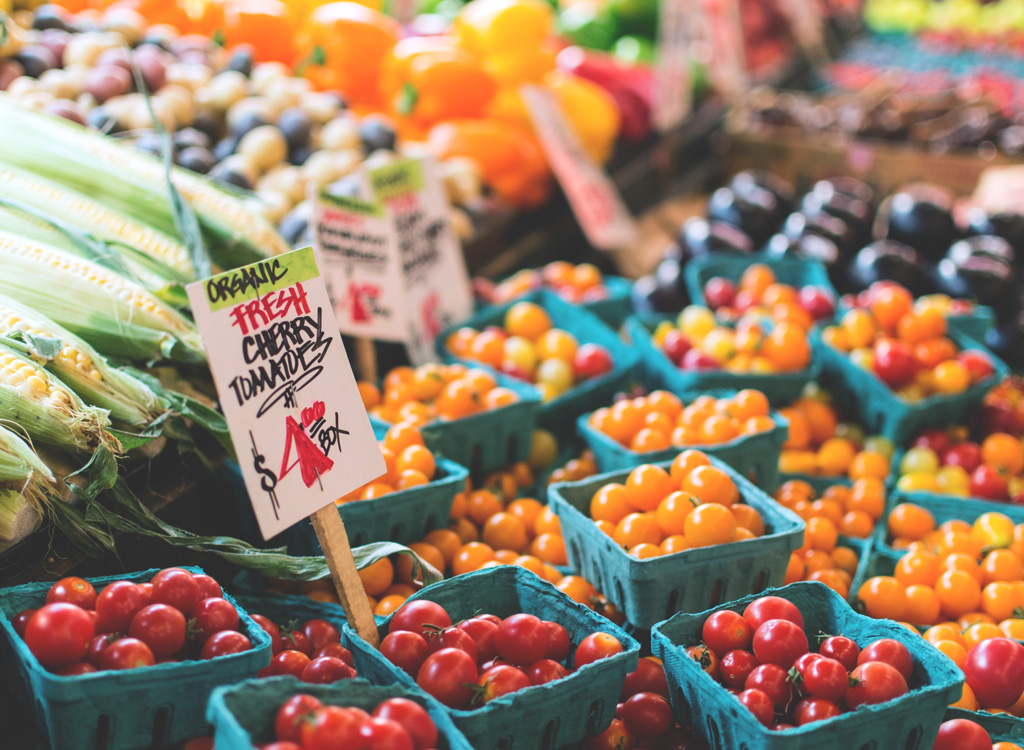
Speaking of shopping seasonally, why not hit up your local farmers’ market? Since it’s literally farm to table, the food you’re bringing home couldn’t be fresher. You’ll also reap more of the health benefits from eating the produce, since it didn’t just travel across the country (or world!) to get to you. You’ll already be cutting down on greenhouse gas emissions from eating local goodies, but you can also walk or bike to stock up on groceries to help out the planet—and benefit your overall well-being!—even more. Why not start with these 30 Essential Spring Superfoods for Weight Loss?